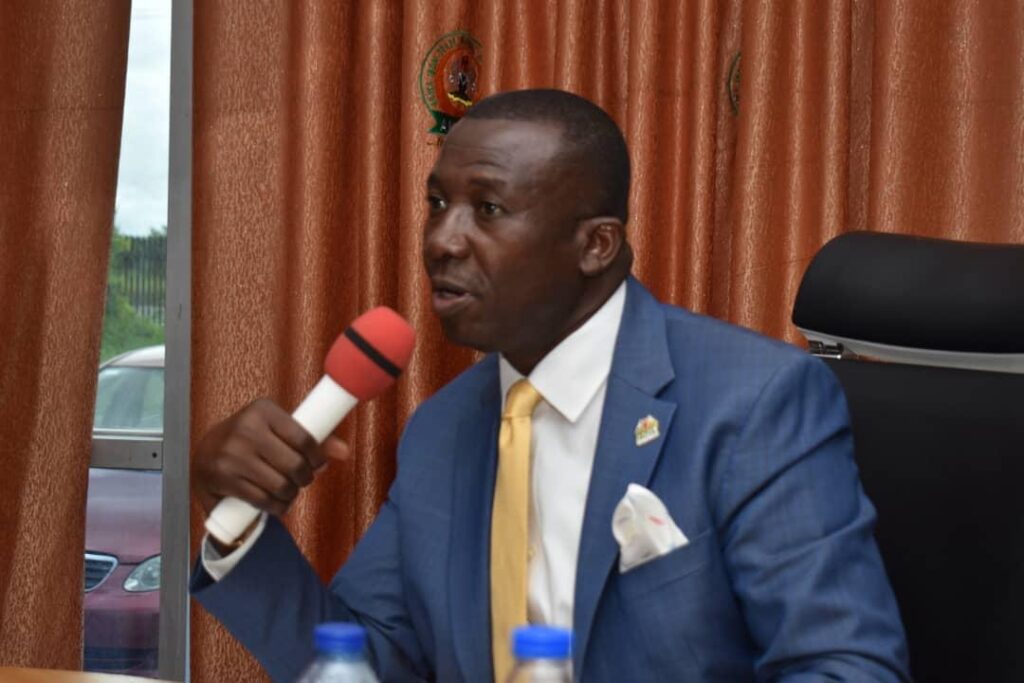The Executive Chairman of Akwa Ibom Internal Revenue Service (AKIRS), Mr. Okon Okon has attributed the dwindling revenue collections in the state to the unjust Federal Government’s Maritime Law operating in the country.
Speaking with journalists in his office on the activities in Uyo on Wednesday, Okon said while revenues in other states such as Lagos are improving, that of Akwa Ibom State is plunging due to the inequitable Maritime law.
The 1999 Nigerian Constitution grants ownership of minerals, crude oil, and natural gas to the government of the federation, including resources in the territorial sea, contiguous zone, and Exclusive Economic Zone. It also vests exclusive jurisdiction over maritime and admiralty matters in the Federal High Court.
Read also
- AKIRS Shuts Three banks over non-remittance of taxes
- AKIRS revenue leaps to N34b annually- Chairman
- ROW: Akwa Ibom Yet To Recover Billions From Telcos
Okon noted that ‘‘We discover that the flourishing maritime activities in the high seas the state derives its revenues from the crude oil which is exploited off-shore controlled by the Federal Government.
He lamented that most staffers of ExxonMobil operating from Lagos pay their PAYEE and personal income tax to that state instead of paying to Akwa Ibom where QIT Operational Headquarters, Ibeno is located.
‘‘Even most senior staffers of banks still pay their PAYEE to their head offices located in Lagos, though their branch offices are located in Akwa Ibom State,’’ the Chairman stated.
He pledged to tackle the dwindling revenue and maximise revenue from the maritime sector.
Mr Okon, who is a member of the on-going Presidential Committee on Fiscal Policy and Tax Reforms and he is representing the South-South Region of the country in the committee, called on companies operating underground in Akwa Ibom State to honour their tax obligations.
The Chairman pledged to tackle the non-state actors in the collection of taxes and remitting same to state government’s coffer.
While seeking partnership with the mass media in the education and sensitization of the people to paying their taxes, he pledged to automate the informal sector of the economy as a way of generating more revenue for the state government.

